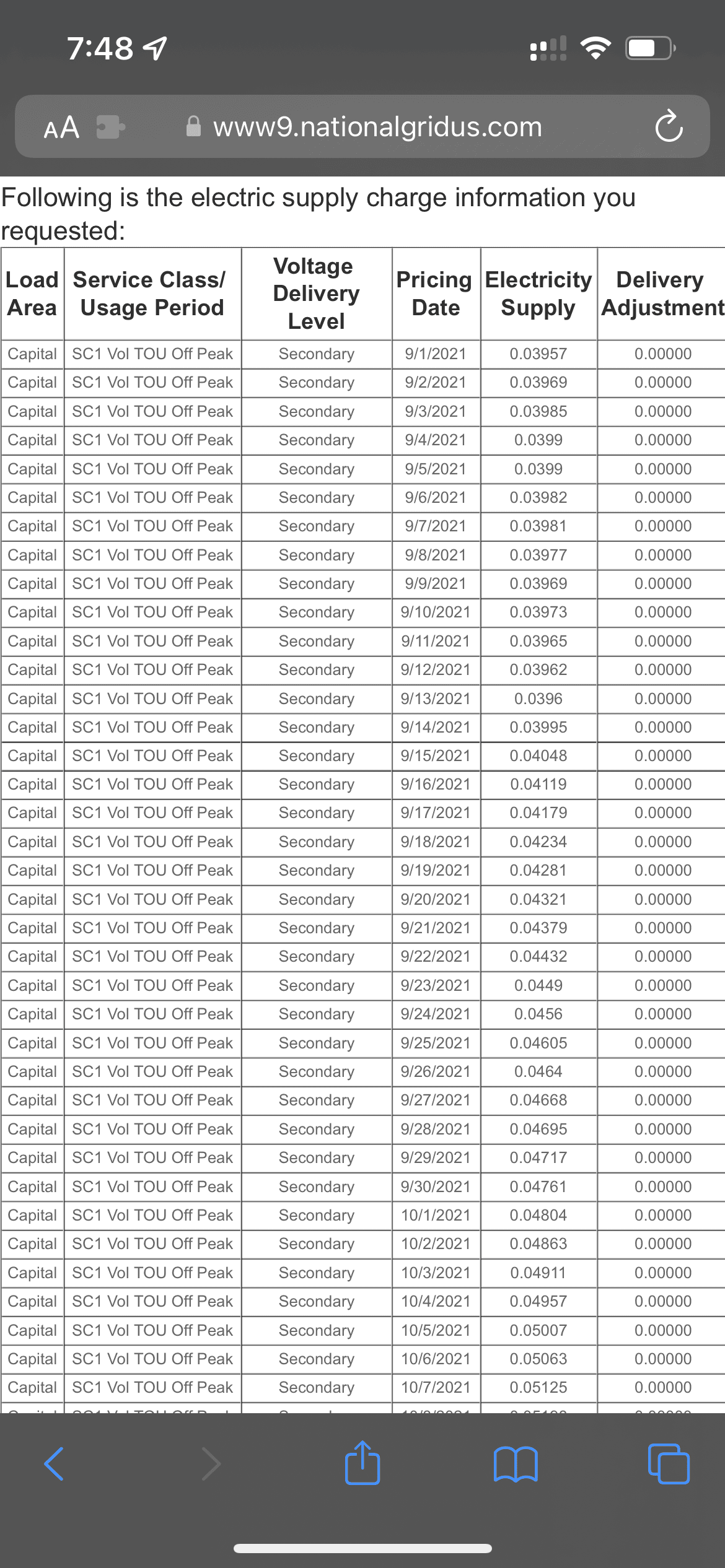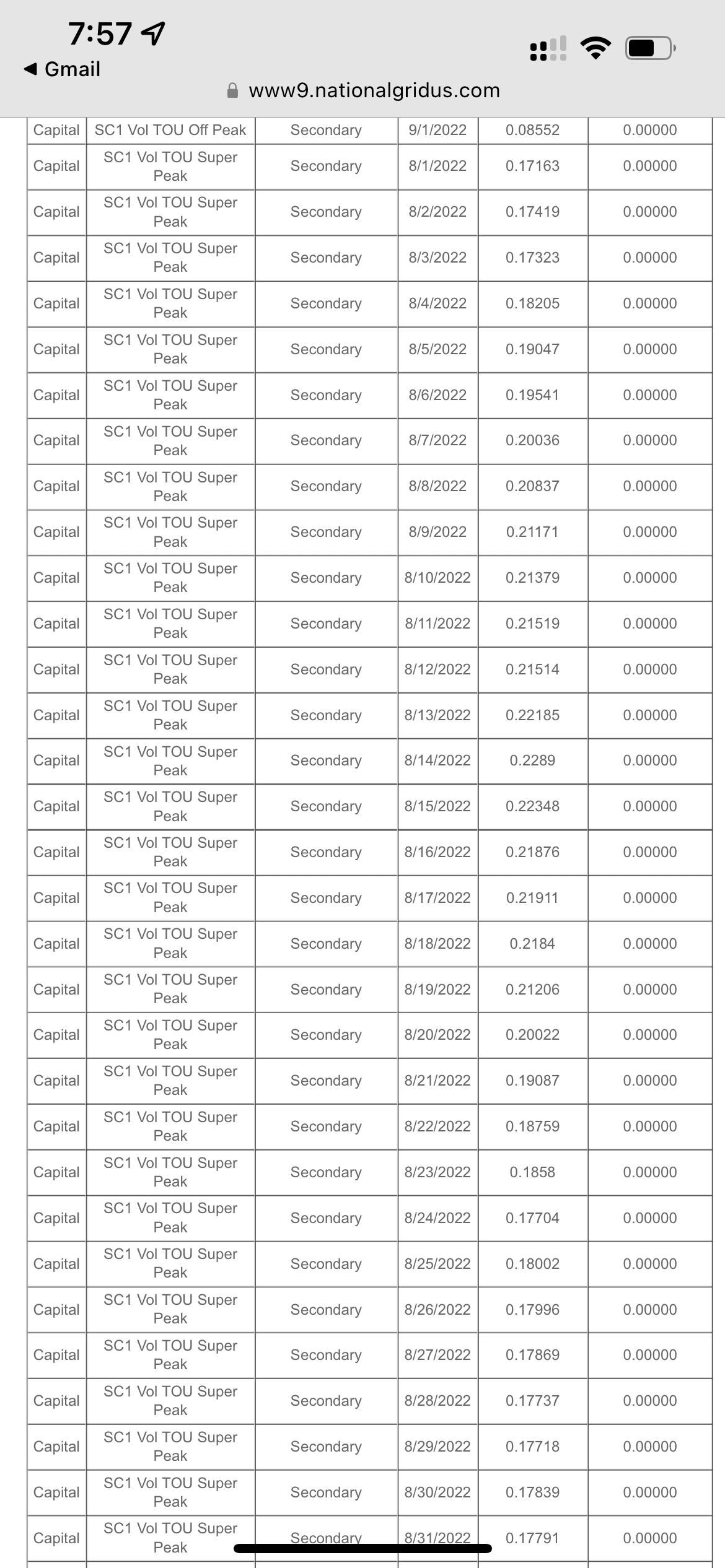VTbuckeye
Well-known member
What happens if you are at a DCFC that has a problem in a per minute state? Your truck can take 150kw and the charge station can deliver 350 when working properly, but sometimes they only deliver 30kw. All of a sudden a planned charge at 120kw average (2kw per minute) can become a 0.5kw per minute and it would either cost 4 times as much or you would get one quarter the charge that you are expecting in a given timeframe. In per kWh states is the charge station is wonky, you only pay for what is delivered and it just takes longer.
In VT we are a per kWh state for dcfc. We have some per hour level 2 charging and it is at a reasonable rate if your car can accept 7kw, but if your car, often PHEV can only accept 3.3kw, then the cost for charging doubled. Our residential electric rate is around 0.186 per kWh with all costs factored in and it will go up by 2+ percent in a month. We just added solar, and VT has a net metering rule so that we get credit for all of our excess solar at one cent per kWh less than we pay for grid power. Our utility also provides EVSEs for free with a time of use discount. Our net metering credits expire after one year. There are between 20 and 25 dollars per month in non-bypassable charges.
In VT we are a per kWh state for dcfc. We have some per hour level 2 charging and it is at a reasonable rate if your car can accept 7kw, but if your car, often PHEV can only accept 3.3kw, then the cost for charging doubled. Our residential electric rate is around 0.186 per kWh with all costs factored in and it will go up by 2+ percent in a month. We just added solar, and VT has a net metering rule so that we get credit for all of our excess solar at one cent per kWh less than we pay for grid power. Our utility also provides EVSEs for free with a time of use discount. Our net metering credits expire after one year. There are between 20 and 25 dollars per month in non-bypassable charges.
Sponsored




